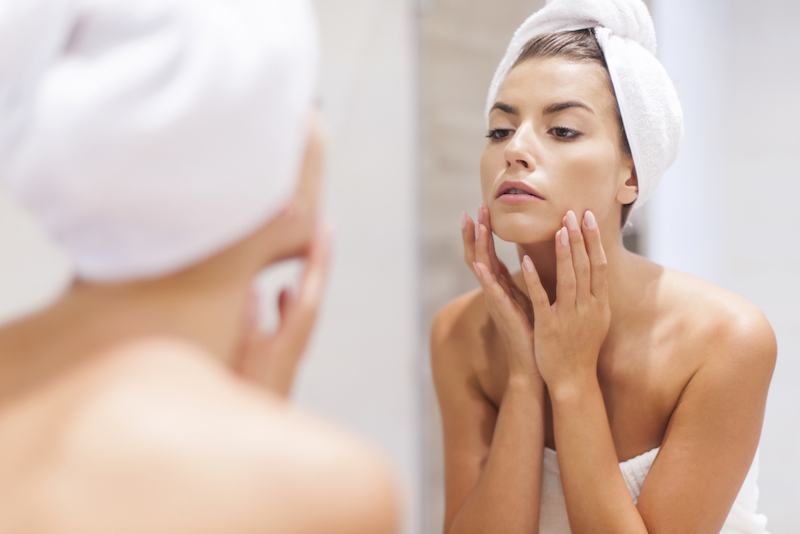Too Much Vitamin B12 Linked to Acne

Too much vitamin B12 may promote acne, according to a new study.
The study found that, in the presence of vitamin B12, the skin bacteria that are commonly linked to acne start pumping out inflammatory molecules known to promote pimples.
In the study, scientists investigated the differences between skin bacteria from people prone to acne and bacteria from people with clear-skinned faces. The researchers looked at the bacteria's gene expression, hoping to figure out why Propionibacterium acnes, which is the most common skin microbe, causes pimples in some people but not in others.
They found that vitamin B12 changed the gene expression of the skin bacteria, which could have led to acne-promoting inflammation.
In humans, vitamin B12 plays roles in metabolism, red blood cell formation and the maintenance of the central nervous system. It's commonly found in multivitamins, but the new research could raise questions about whether people with acne should take vitamin B12 supplements.
"I think there's a link" between vitamin B12 and acne, said Huiying Li, a co-author of the new study and an assistant professor of pharmacology at UCLA's David Geffen School of Medicine. Her team found a molecular pathway that could explain the link in their study, but it will need to be confirmed by future research."There's still a lot to be studied in order to really understand if B12 causes acne," she said.
Looking for a mechanism
Get the world’s most fascinating discoveries delivered straight to your inbox.
By looking at the gene expression patterns, Li's team first found that the pathway that produces vitamin B12 was significantly altered in the skin bacteria of people with acne, compared with the skin bacteria of people without acne. This finding raised Li's suspicions about B12's role in acne, she said. Prior studies citing an association between these two elements confirmed the possibility of a link — research dating back to the 1950s has suggested that vitamin B12 supplements could contribute to some people's acne.
Li's research team then looked at the skin bacterium in pimple-free people who received a vitamin B12 injection. The researchers confirmed that the B12 supplement repressed the expression of genes in P. acnes involved in synthesizing the vitamin. In fact, the expression of those genes was lowered to levels similar to those of acne patients. [4 Common Skin Woes, and How to Fix Them]
A week after receiving the vitamin B12 injection, one of the 10 participants broke out in pimples. That person's P. acnes gene-expression pattern also changed, the researchers found. Before the B12 injection, it was similar to those of the other healthy participants, but 14 days after the vitamin B12 shot, it looked much more like an acne patient's pattern.
The researchers also did experiments on P. acnes growing in lab dishes.They found that when they added vitamin B12 to the bacteria, the microbes started producing compounds called porphyrins, which promote inflammation in acne. Inflammation is a key step in the later stages of acne development, Li said.
Together, the new findings suggest that when too much B12 is present, the bacteria have changes in their gene expression that suppress further synthesis of the vitamin. These bacteria switch to producing porphyrins, the researchers explained, and in some people, this uptick in inflammatory compounds may contribute to acne.
"We think the pathway we studied could potentially explain part of acne's pathogenesis," Li said.
Hang on to those vitamins
But although the study found a possible link, it did not prove that too much vitamin B12 definitely causes or worsens acne.
"The data and hypothesis are very intriguing, but much additional investigation is required to determine if this is a real cause-and-effect phenomenon," said Josh Miller, a professor of nutritional sciences at Rutgers University who was not involved with the study.
In addition, although the new findings suggest that B12 supplements may promote inflammation, other studies have suggested the opposite — that vitamin B12 has anti-inflammatory properties, Miller said.
"Proof of a causative effect of B12 supplements on acne development will require randomized control trials with enough subjects to see a significant effect, if one exists," he told Live Science.
Li also cautioned that it's way too early to suggest that people dealing with acne should stop taking multivitamins with B12. Most of the studies that have found an increase in acne with vitamin B12 involved large doses of the vitamin, given by injections, she pointed out.
"This study does present some compelling evidence suggesting that supplementation with B12 can cause or exacerbate acne in a subset of individuals," said Dr. Whitney Bowe, clinical assistant professor of dermatology at the Icahn School of Medicine at Mount Sinai Medical Center in New York. "However, we don't have enough evidence at this point to broadly recommend that all acne patients try to avoid vitamin B12 supplements or foods rich in vitamin B12."
Beyond zits
The aim of the research was to better understand how humans, and the microbes that live on their bodies, interact to cause disease, Li said. A deeper understanding of microbial-disease pathways could lead to more targeted treatments, the researchers wrote in their study, published today (June 24) in the journal Science Translational Medicine.
"The study shows that "what we eat or drink can impact the health of our skin by affecting the microbes that live on our skin," Bowe said. "We have 10 bacterial cells for every one human cell in our body. The more we learn about these bacteria, the more we are realizing the major impact they have on our health and well-being."
Follow Jennifer Abbasi on Twitter. Follow us @livescience, Facebook & Google+. Original article on Live Science.
